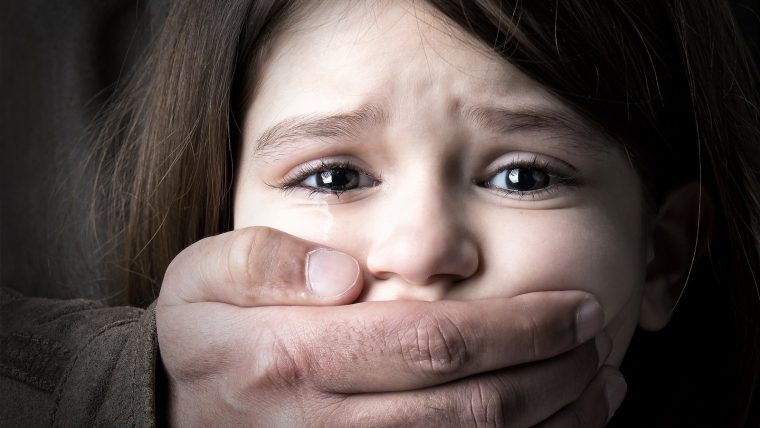
In this day and age, it’s hard to overstate just how influential social media can be. Whether you’re into Facebook, Tiktok, Instagram or something else, social media has given us a platform where we can meet and interact with all sorts of people from all over the world.
Unfortunately, this also has its downsides. Being able to interact with anyone sounds great up until you run into someone you really don’t want to have anything to do with.
Sometimes, this is as mundane as awkwardly stumbling into an ex’s account and learning what they really thought about you. It might be awkward and embarrassing, but in the long run, it’s not really a big deal.
But sometimes, following the wrong social media post can start a spiral of problems. Especially when it comes to fake news.
Less AntiVaxxers, More “Child Kidnappers”

You remember a year or two back when the COVID-19 pandemic was in full swing? It seemed that every day we had news articles and government agencies warning us about the dangers of fake news and how we all needed to be careful online.
Sadly, the end of the pandemic hasn’t led to an end to fake news. If anything, it’s the opposite; go to any social media platform and you’re bound to stumble across some shocking viral information that may or may not actually be true.
Nowadays, virus and vaccine conspiracies are no longer considered cool and hip. But social media scammers have found a hot new trend: fake child kidnapping reports.
Six Children, No Organs Harvested

On 26 September 2022, Malaysian police debunked a viral message on social media regarding the abduction of six children for an illegal organ harvesting operation.
According to Bukit Aman Corporate Communications Head ACP A.Skandaguru, this particular fake message was originally made in 2017 but is being reposted on various social media platforms for some reason.
“These children were said to be given banned substances that render them unable to speak so that they can be more easily transported on a poultry lorry to a neighbouring country for organ transplants,” he said. “The message also claimed that the authorities inspected the lorry and found the children.”
According to Skandaguru, the police have not received any official reports on this matter. He warned Malaysians to be more careful about what they share online as those caught spreading fake news could be charged under Section 233 of the Communications and Multimedia Act 1988.
What’s With All These Fake Kidnapping Reports?

As it turns out, this isn’t the first fake social media post involving child kidnapping. In fact, it’s not even the first one this month. What makes matters scarier is that it’s happening all across the country.
Case 1: Johor
On 10 September 2022, Johor police took notice of a viral message being spread via WhatsApp claiming that a nine-year-old boy had been kidnapped from a tuition centre. After a brief investigation, they announced that the post was fake after discovering that the “kidnapped” child was in fact at home with his father.
Case 2: Kelantan
On 27 September 2022, Kelantan Police Chief Datuk Muhamad Zaki Harun urged netizens to stop spreading fake news about child kidnapping as it was causing fear and tension in the community.
“Several posts that were uploaded on social media have prompted the Royal Malaysia Police, in particular the Kelantan contingent, to conduct an investigation.
“Allegations on the presence of suspicious individuals in school compounds or certain places have been investigated by the police, and all the allegations were found to (be) not leading to a kidnapping or abduction case,” he said.
According to Harun, the Kelantan police investigation into claims of attempted kidnapping of primary school pupils in the Gua Musang, Kuala Krai and Pasir Puteh districts had found no evidence of any crime.
Case 3: Perak
On the same day, another viral post about child kidnapping was debunked by Perak police after the investigation discovered that the nine-year-old “victim” was the one who started the fake post in the first place!
“When we asked the child what her purpose was for making such false report, her answer was that she ‘wanted to find out how police take action in such matter’,” said Perak Police Chief Datuk Mohd Yusri Hassan Basri. He added that the student was believed to have been influenced by watching other kidnapping videos on messaging platforms such as WhatsApp.
Fake News, Real Consequences
It can be tempting to write these fake reports as something harmless — a simple prank that had gone wrong. But the truth is that spreading fake news can result in some all-too-real consequences.
Consequence 1: Jailtime

As mentioned above, spreading fake news is considered a crime. One that has a pretty hefty punishment to boot.
“Spreading this kind of message is seen as an attempt to create fear and anxiety among the public,” explained Johor Police Chief Datuk Kamarul Zaman Mamat. “The act of spreading and making false speculations is illegal, and action can be taken under Section 233 of the Communications and Multimedia Act 1998.”
If found guilty, this can lead to a fine of up to RM50,000 and/or up to a year in jail.
Consequence 2: Wasting Police Time

As a result of all these fake posts, the Malaysian police have been forced to waste valuable time and manpower chasing rumours instead of catching real criminals.
“Following the report on the attempted abduction case, the police have formed a special task force team to investigate so that parents and the public won’t be worried over their children’s safety when sent to school,” said Mohd Yusri.
It might sound like a funny joke at first glance, but you have to consider the side effects.
As part of the process, they had to interview all the potential witnesses, including the victim’s friends, classmates, two security guards and one van driver who was probably feeling very worried after being accused of kidnapping someone.
How many other criminals could have gotten away with their crimes while the police were busy with this investigation? How much of our tax money was wasted on what turned out to be a child’s prank? And what if a real kidnapping happens later and the police don’t take it seriously because they think it’s another fake story?
Consequence 3: Vigilante Violence

Despite what many assume, fake news is far from harmless. In fact, for some unfortunate victims, it can be deadly serious.
During the investigation into the Kelantan fake kidnapping cases, an innocent man was beaten up at the Muhammadi Mosque after suspicious individuals believed that he was involved with the “child kidnapping” incidents.
The sad part is, he could be considered lucky.
In 2018, at least 20 people were killed after a series of fake news posts about child kidnappings went viral in India. An online hoax claiming that strange men were abducting children led to angry mobs attacking homeless people, picnic goers and in one case, an elderly woman handing out chocolates to children.
Fortunately, Malaysians have been able to keep a more level head so far. But if these fake news posts are allowed to continue spreading, how long will it be until paranoid parents and malicious trouble makers decide to take matters into their own hands?
Keep Calm and Stop Spreading Fake News

Look, I get it. It’s easy to get caught up in a wave of fake news. We see something shocking on social media and immediately want to show it to our friends. However, the next time your finger hovers over that “share” button, take a moment to ask yourself the following questions:
- Who is posting this information? Is it a real person or could it be a bot?
- Where are they getting this information from? Is it an official news outlet or is it “a friend of a friend of a friend told me this” sort of situation?
- Is there any evidence? After all, even if they say a picture is worth a thousand words, pictures are all too easy to fake nowadays.
While the pandemic may be over, we all still need to remain vigilant when it comes to what we share online. After all, nobody wants to get hit with a big fine for a social media post.
Of course, even if you try to be as careful as possible, those around you may not take this fake news stuff seriously. If you need help convincing your friends and loved ones to stop acting as fake news spreaders, check out:
Uncles and Aunties: Please Stop Sending Us Fake News









